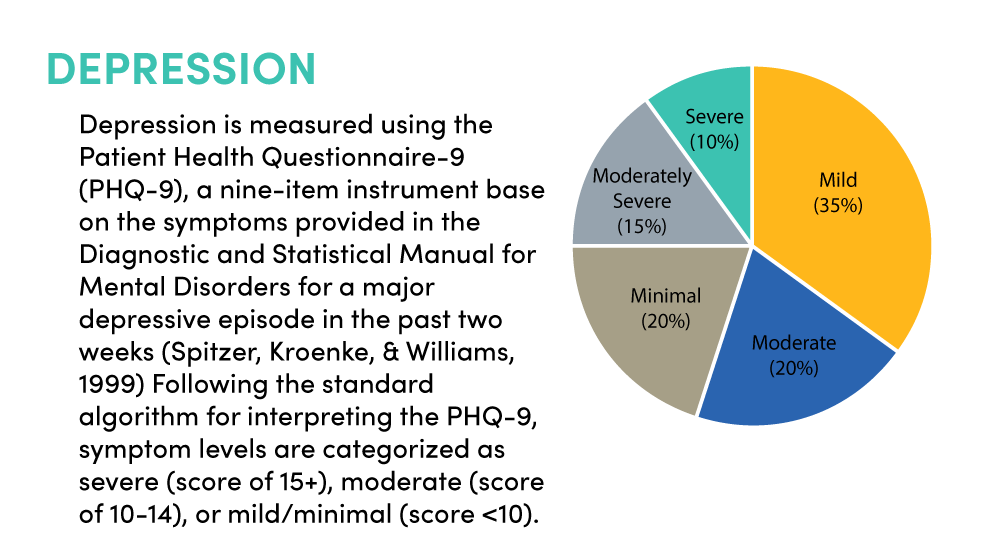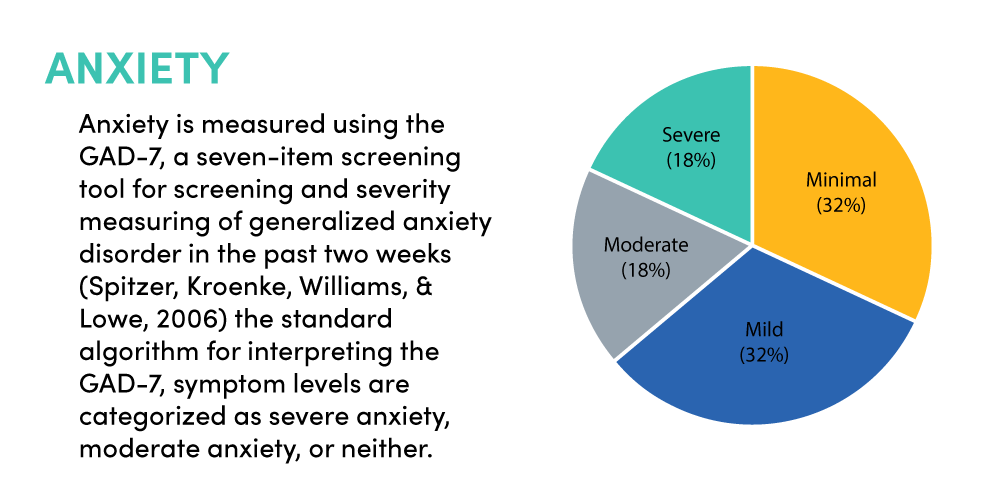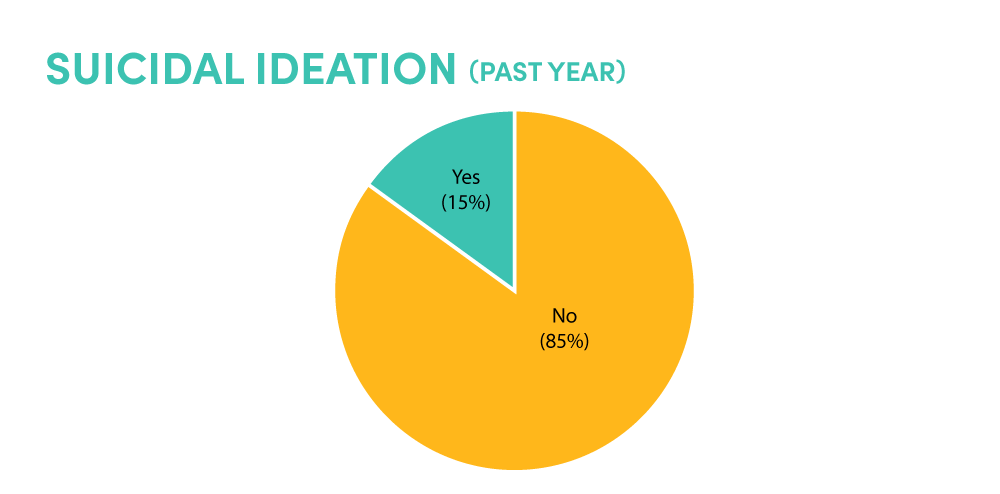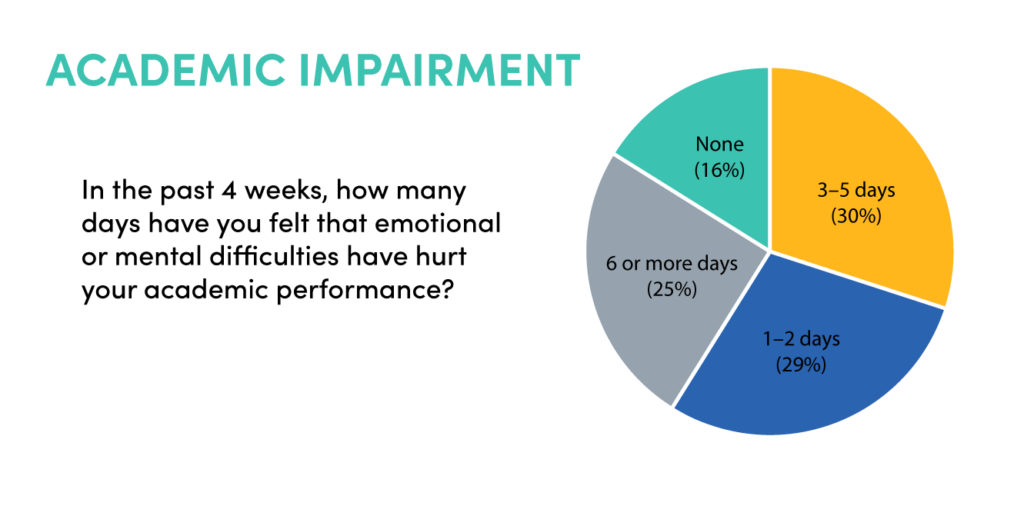Culture of Care
Supporting Student Mental Health and Well-Being
Guidance for Faculty & Staff
Faculty and staff play an instrumental role in supporting students’ mental health, well-being and overall success. Below are resources to help staff and faculty members identify ways to support students and ways to engage in self-care along the way. It takes all of us to create a Culture of Care.
65%
of undergrad students
reported strongly agree/agree that educators
were committed to their success
43%
of undergrad students
reported that people at UNCG regularly
check-in to see if they need support
UNCG offers a series of suicide prevention and mental health trainings to build our collective knowledge, awareness and skills to prevent suicide and support mental health. It takes all of us to create a Culture of Care.
Learn more about our students…



Meeting the Needs of UNCG’s Diverse Student Population
As a minority-serving institution and an emerging Hispanic-serving institution with a history as a women’s college, UNCG takes pride in providing access and opportunity to individuals from underrepresented and historically marginalized groups. The incoming class of 2023 included over 50% of students who were first-generation college students. Understanding their unique needs, strengths, and challenges ensures that faculty can educate and support students in ways that ensure their success and contribute to their retention. Additionally, cultural relevance, responsiveness, and validation contribute to students’ sense of belonging and identification as Spartans.
50%
of ALL undergrad students
self-identified as
a first-generation college student
(according to 2023 stats)
65%
of undergrad students
felt people at this institution valued knowledge from their cultural community
(2023 CECE iBelong Survey)
69%
of undergrad students
reported their cultural community was valued at the institution
(2023 CECE iBelong Survey)
- Safe Zone 1.0 & 2.0 and Trans Zone (Office of Intercultural Engagement)
- Recovery Zone (Spartan Recovery @UNCG)
- Green Zone (Office of Military-Affiliated Services)
- Question, Persuade, Refer (QPR) (Student Health Services)
Learn more about the many factors that can impact a student’s learning. Most people have uneven knowledge about various racial, ethnic, gender or national identities. Take advantage of the many resources available to gain more understanding of concerns or identities with which you may be less familiar.
- Racial Equity at UNCG
- Renowned anti-racist author and scholar Ibram X. Kendi has curated an anti-racist reading list
- TED talks that enhance the understanding of racism in America
- The Office of Intercultural Engagement offers events, resources, student initiatives, and training related to race, ethnicity, gender, gender identity, sexual orientation, privilege, and oppression
- Take advantage of the UNCG developed Gender Diversity Toolkit
UNCG’s University Teaching and Learning Center (UTLC) promotes, supports, and enhances high-impact teaching, learning, and mentoring practices across all stages of an academic career. Check out UTLC’s Teaching & Course Design Guides (University Teaching and Learning Commons) which includes topics such as Universal Design, Student Engagement, and Trauma-Informed Pedagogy, among others!
Experiences of bias can have a direct impact on students’ well-being and academic success. For example, many of our students are impacted by racial trauma and racial inequity which have been shown to affect mental health, well-being, and academic performance. Symptoms associated with racial trauma include anxiety, depression, hypervigilance, recurrent images of witnessed violence, lack of hope for the future as well as stress-related physical symptoms. As a community, we strive to deepen our understanding of ways that we positively or negatively impact our students, and to take action to ensure that our community is one of learning and growth.
- The Office of Intercultural Engagement offers numerous events, resources, student initiatives, and training related to race, ethnicity, gender, gender identity, sexual orientation, privilege, and oppression
- Racial Trauma
- The Little Understood Mental Health Effects of Racial Trauma
- UTLC: Trauma-Informed Pedagogy
- Racial Equity at UNCG
Supporting Mental Health, Well-Being & Academic Success
UNCG students are persistent, resilient, and determined. As staff and faculty, we can support and enhance that resilience with a good understanding of what students are facing and how these challenges can impact learning. Common concerns include stress, anxiety, depression, trauma, and financial stress. Difficulties with sleep are also common. Some students are trying to learn while dealing with food or housing insecurity and/or providing support to their families. This is a set of complex mental, social and emotional demands students may face while pursuing their education.

- Counseling & Psychological Services
- How to Make an Appointment for counseling
- How to Get Help Now
- Mental Health & Substance Use Resources
- Concerned About A Student?
- Students In Distress (Dean of Students Office)
- Counseling & Psychological Services (Student Health Services)
- How do I let the university know about my concerns? Concerning Behavior Report
- The Active Minds mental health advocacy organization has an active listening model they offer for faculty and students called V-A-R for VALIDATE, APPRECIATE, REFER. Learn more HERE.
- Sudden decline in quality of work and grades
- Increased listlessness and disengagement
- Extreme mood changes or excessive, inappropriate display of emotions
- Social isolation or declining engagement with class, instructors, or peers
- Repeated absences
- Repeated requests for extensions
- Not responding to outreach
- What they say to you: ”I’ve been really stressed,” “I have been feeling overwhelmed.”
- Marked changes in personal hygiene
- Disclosure of family problems, financial difficulties, depression, grief, suicidal thoughts or self-injury
- Excessive fatigue or sleep disturbance
- Sharing bizarre, disorganized or garbled/disjointed thoughts
- Unprovoked anger or hostility
- Making implied or direct threats to harm self or others
- Use of alcohol or other substances in the learning environment
Students will approach faculty and staff that they admire, relate to, and consider mentors. Your response to them can be enormously impactful. Some key practices of active listening are to empathize, normalize, and validate.
Empathize
Express your understanding of their concerns. Sometimes this is just by quietly but attentively listening. At other times, you may find it appropriate and natural to share your own experiences with difficult times or with seeking help. No matter what you say, genuine concern and understanding is healing.
Normalize
We all go through similar or shared crises and challenges. Let students know it is entirely normal to be overwhelmed, stressed, sad, anxious, or whatever else they may be experiencing. Often students will compare themselves to others and carry the idea that they are inferior if they are not coping as well as their peers appear to be. Reminding them that others’ outside appearances do not necessarily represent their inside world can be useful.
VALIDATE
Students will often minimize or dismiss their challenges or feelings. When they choose to share them with you, they will be impacted when you validate their experiences and emotions as important, their challenges as difficult, and their ability to cope as resilient.
Faculty are in a unique and challenging position as they balance the mission of teaching and learning with an understanding of how mental health and well-being affect students in the classroom.
Mental Health Syllabus Statement
- Consider highlighting the mental health and well-being statement in your syllabus to normalize help-seeking behaviors (UTLC Syllabus Template)
- Include this Health & Well-Being statement along with these resources:
- Health and well-being have a big impact on your learning and academic success. Throughout your time at UNCG, you may experience a range of concerns that impact your personal and academic success. These might include illnesses, strained relationships, anxiety, high levels of stress, alcohol or drug concerns, crime victimization, feeling down, loss of motivation, or death of a loved one. It is OK TO ASK FOR HELP!
- Student Health Services (336-334-5340): for preventative and acute healthcare, SHS offers a primary medical clinic, full pharmacy, and over-the-counter medications.
- Counseling & Psychological Services (336-334-5874): free confidential mental health services!
- Spartan Well-Being: helping students Be Well & Stay Well!
- Campus Violence Response Center (336-334-9839) Find Your Healing Here!
- Spartan Recovery offers recovery support services (SRP@uncg.edu)
- Health and well-being have a big impact on your learning and academic success. Throughout your time at UNCG, you may experience a range of concerns that impact your personal and academic success. These might include illnesses, strained relationships, anxiety, high levels of stress, alcohol or drug concerns, crime victimization, feeling down, loss of motivation, or death of a loved one. It is OK TO ASK FOR HELP!
Additional Practices
- UNCG biology professor Dr. Bruce Kirchoff has offered a set number of assignment “opt-outs” or mental health passes. This would allow students in distress to opt out of an assignment without penalty.
- Starting class with a brief well-being practice, such as a brief mindfulness video or recording sends the message that mental well-being matters AND that it can be part of the learning experience. Starting a class with a focusing practice such as mindfulness could improve learning. Try these exercises: 30-second guided breathing exercise and a two-minute guided breathing exercise.
- Other practices that signal that you are part of a Culture of Care would be to say something in your first class about the resources for health and well-being on campus, or to put something in your email signature that indicates your support for mental health such as a quote or even just “Mental Health Matters.”
- Introduce any of the practices listed under “Taking Care of Yourself” to your class.
- Campus Activities & Programs
- Career & Professional Development
- Counseling & Psychological Services
- Dean of Students
- Elliott University Center
- Housing & Residence Life
- Intercultural Engagement
- Leadership & Civic Engagement
- Military-Affiliated Services
- Office of Accessibility Resources & Services
- Office of Student Rights & Responsibilities
- Recreation & Wellness
- Student Health Services
- Academic Achievement Center
- Educational Opportunities Programs
- Financial Aid Office
- Students First Office
It is essential that you stay attuned to your well-being and needs as you support our students. You are in the same storm of uncertainty, fear, disruption, and grief that they are in. These resources may help you pay attention to and improve your well-being as you navigate teaching, mentoring, and supporting our students.
Breathe Deeply
Take five slow, deep breaths right now and feel yourself calm down. Find additional breathing exercises here.
Practice Staying in the Present Moment
Worrying will not change or help the situation; try meditation or guided imagery. Find other stress management and relaxation techniques here.
Stay Active
Physical activity can help relieve stress. Engage in joyful movement! Try 3-minute chair yoga or start, interrupt, or end your days with a sun salutation.
Control What You Can
Have one or two things a day that are routine and that are in your control. This may be a walk you take, cooking a meal, spending a specific time with your partner, your kids or your pets, taking a bath, etc. These activities can be anchoring in times of uncertainty.
Talk to Someone
Tell a family member or friend how you are feeling. Contact the UNCG Employee Assistance Program if fears, anxiety, sadness or grief begin to interfere with your functioning.